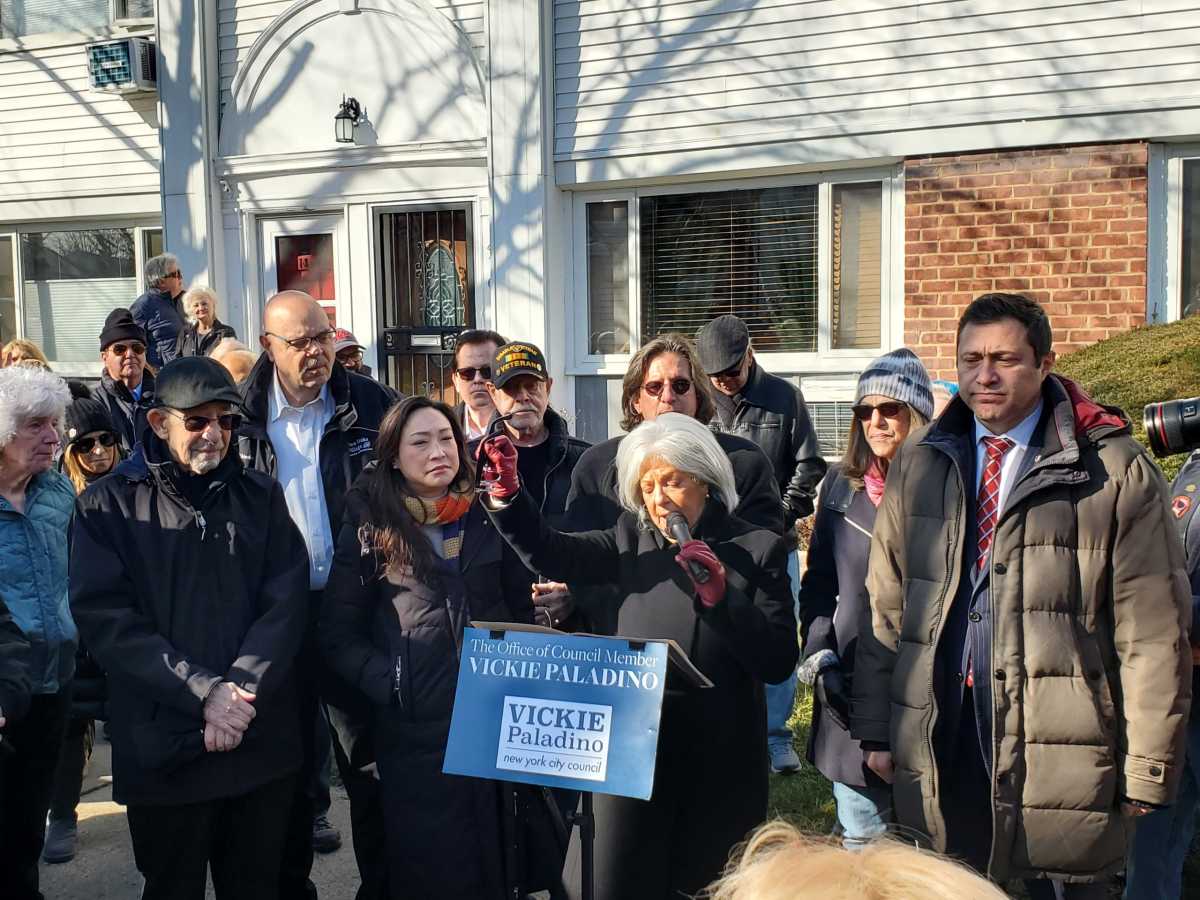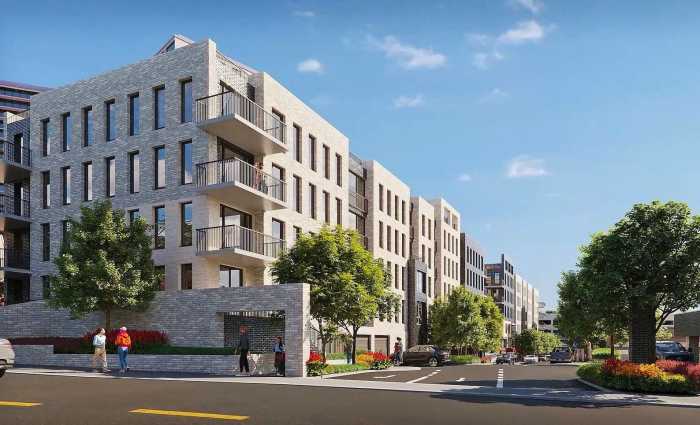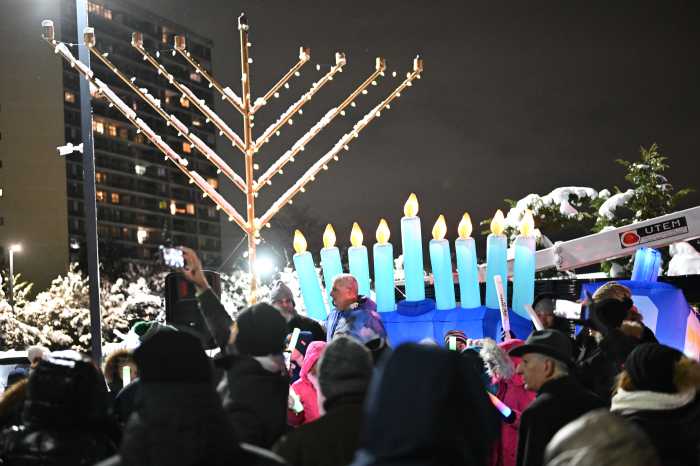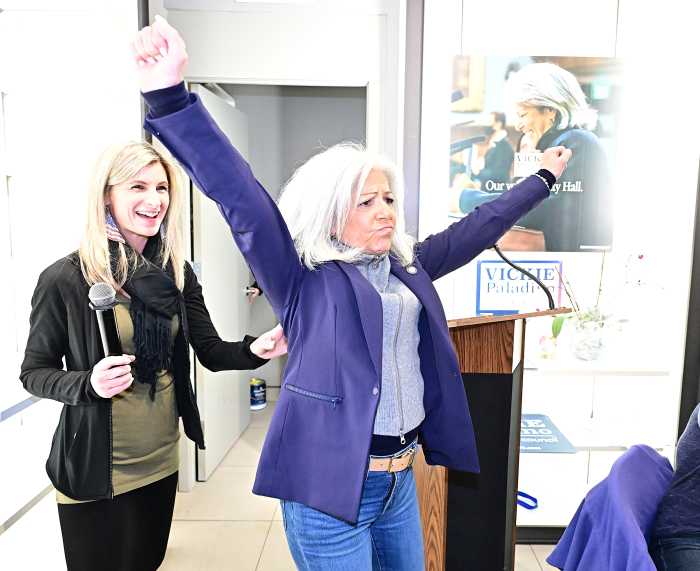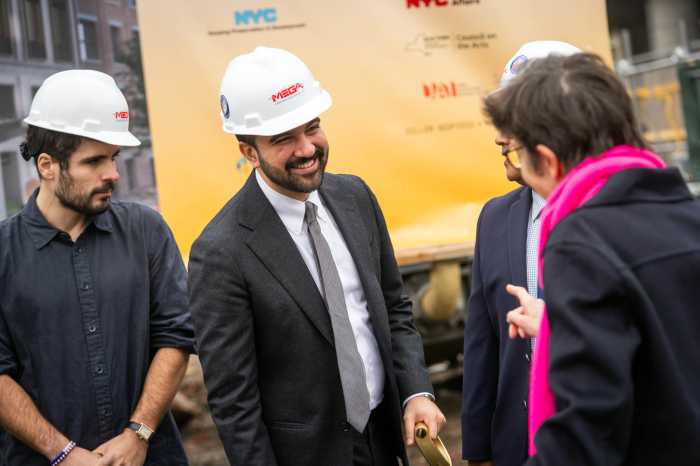Several Bay Terrace residents gathered on Feb. 1 at the Bay Terrace Gardens, where Councilwoman Vickie Paladino announced that she will be introducing legislation that will delay the implementation of the greenhouse gas requirements of Local Law 97 (LL97) by seven years. She intends to introduce the legislation during Thursday’s stated meeting.
According to Paladino, this legislation was made based upon widespread community input and feedback. This, as well as consultations with stakeholders and subject matter experts, led Paladino to determine that there would be devastating immediate financial impacts from LL97 on the district. In particular, middle-class co-op and condo owners, small landlords and renters would suffer to such an extent that many could end up being priced out of their properties.
“The steep fines will be financially ruinous for our already struggling middle class and small business community,” Paladino said. “These costs will certainly be passed onto residents, potentially ending middle-class ownership of co-ops and condominiums in New York City and further increase rents for everyone across the board.”
Passed in 2019, LL97 requires buildings in New York City of more than 25,000 square feet and certain multi-building properties to meet new energy efficiency and greenhouse gas emissions limits by 2024.
Paladino was joined at the press conference by Council members Linda Lee and Ari Kagan. The Democrat Lee, along with the Republicans Kagan and Paladino, emphasized that the issue at hand is a bipartisan concern.
“Our city faces a crisis of affordable housing,” Paladino said. “The very last thing we need should be deliberately increasing the cost of living in this reckless manner. If allowed to remain in place, Local Law 97 will ultimately accelerate the exodus of hard-working New Yorkers who seek financial relief everywhere.”
There were a few reasons as to why Paladino ended up choosing seven years as the length of the delay. She said it would give property owners time to plan and implement the upgrades required without having to worry about facing penalties. The time also allows for technological advancements to catch up with the law’s requirements. This would bring down costs and allow for the implementation to be done in a much more affordable way. This time frame also gives the city and state the chance to fully assess future impacts on the power grids and the infrastructure, allowing for the opportunity to make upgrades in the future that would make it easier to keep pace with the law’s requirements.
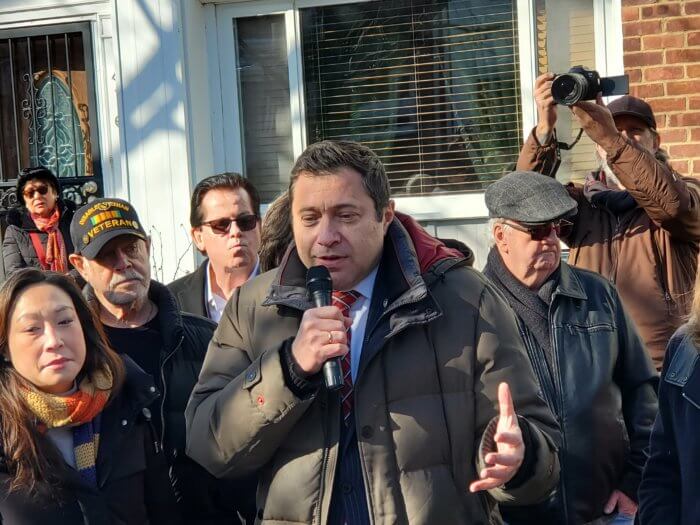
“I am very grateful to Councilwoman Paladino for pushing this bill,” Councilman Kagan said. “My hope is as many colleagues as possible, Democrats and Republicans, will sponsor this legislation. It’s not about [being] against the environment. I am for New York City.”
Councilwoman Lee emphasized the importance of making sure that those on a fixed income don’t get penalized at the same proportion as those across the city who aren’t as financially limited. She pointed out there may be more of these residents in certain districts than in others, which should be considered. Another issue she brought up was the question of how to calculate green spaces when factoring in carbon emissions. Even after the seven-year delay, Lee questioned how the city will make policies that make sense in regards to penalties and their implementations.
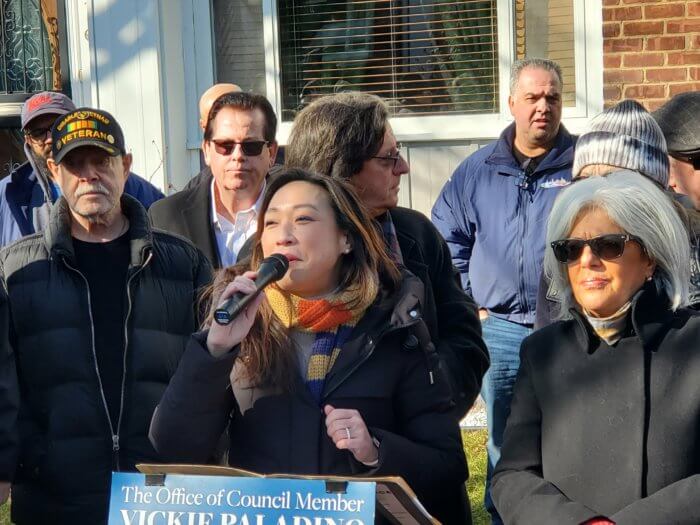
“There’s co-ops and condos in my district that have made upgrades as recently as 2016,” Lee said. “But then the new regulations are coming out and they have to spend more money to upgrade. How do we factor in upgrades that have already been made and put that into the calculation as well? It’s not just about delaying. Co-ops and condos never should’ve been a part of this.”
Glen Oaks Village Owners Co-op President Bob Friedrich said he intends to reach out to other co-op owners and encourage them to contact their elected officials once the legislation is introduced. He believes this could go a long way in getting these leaders on board with voting in favor of the legislation.
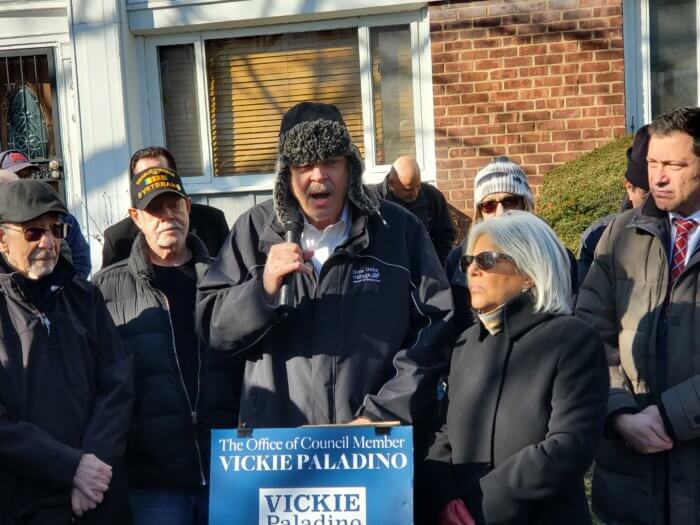
“Like many of the other [co-op] presidents, I spent years fighting to support co-op affordability in New York,” Friedrich said. “Our residents are working class families and retired seniors. Local Law 97 endangers the affordability of their homes. The City Council has unleashed the greatest unfunded mandate with punitive penalties ever imposed on its constituents.”
“This is about giving our middle class co-op, condominium and building owners a fair chance to reach sustainable goals in regards to meeting regulations put forth by Local Law 97,” Paladino said. “I hope this council can come together and delay implementation, so a reasonable, common-sense solution can be reached.”

